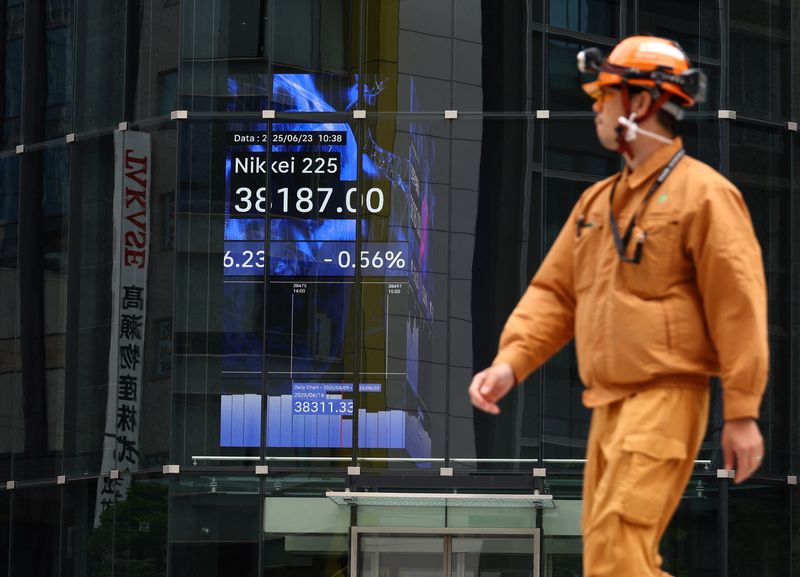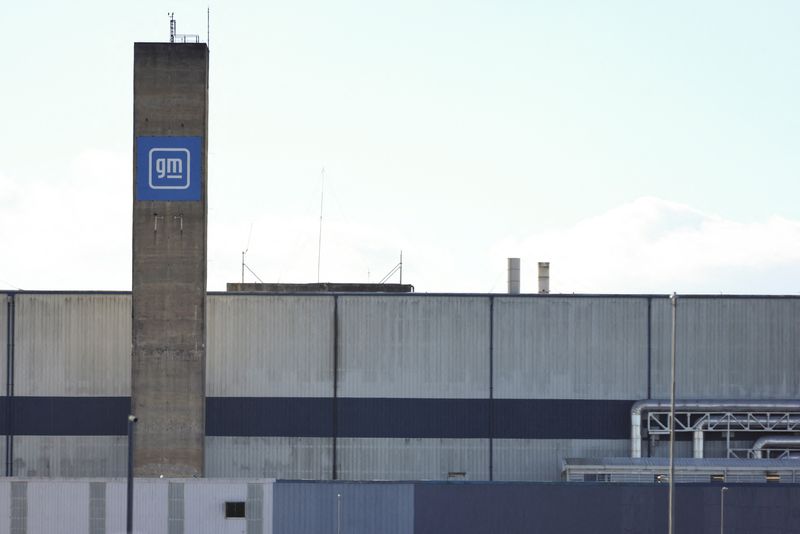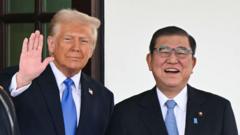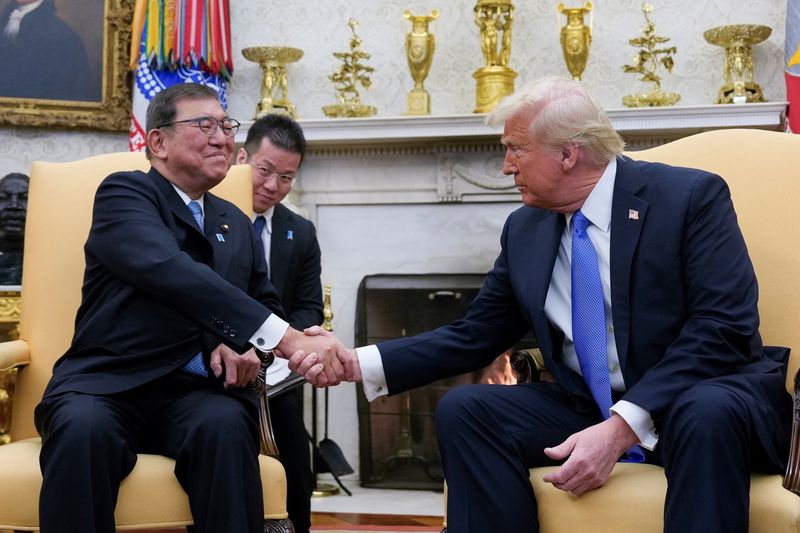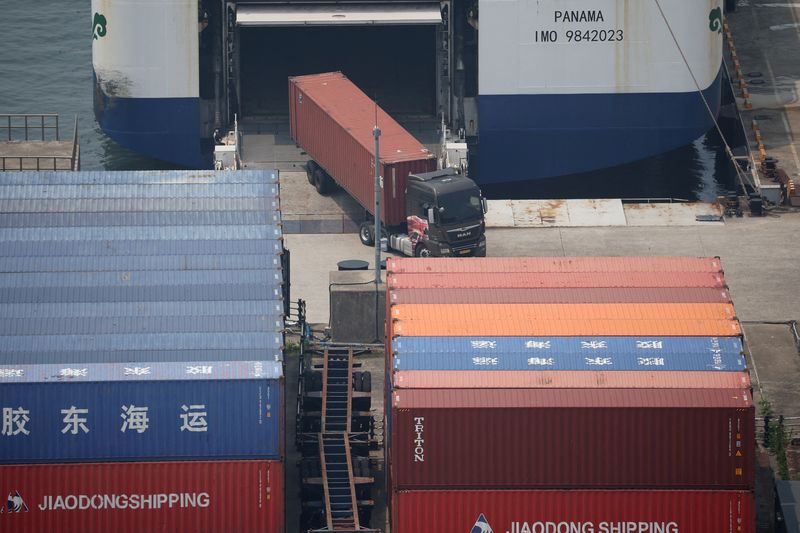See what’s trending right now
Japan Trade Dealin Financial Markets
3 hours agoAsian markets rise as Trump announces Japan trade deal, boosting optimism, while gold dips on hopes for US trade progress. However, Detroit automakers express concerns over the agreement's impact.
Show me
Financial Markets
Nikkei surges in boost to Asia as Trump announces Japan trade deal
PositiveFinancial Markets
Japan's Nikkei stock index jumped significantly today, giving a lift to broader Asian markets, after former U.S. President Donald Trump announced a new trade deal with Japan. Investors seem optimistic about the agreement, though details are still emerging.
Editor’s Note: Trade deals—even just the announcement of one—can move markets fast. A stronger Nikkei often signals confidence in Japan's economy, and since Asia's markets are interconnected, this could ripple out. Whether the deal holds up long-term is another question, but for now, traders are reacting with bullish energy.
Gold Slips With Focus on US Trade Talk Progress After Japan Deal
NeutralFinancial Markets
Gold prices dipped slightly after a three-day climb, as investors reacted to news of a US-Japan trade deal. The announcement, made by President Trump, eased some trade tensions ahead of a looming August 1 tariff deadline, shifting focus away from safe-haven assets like gold.
Editor’s Note: When trade tensions flare up, investors often flock to gold as a safe bet—so when progress is made (like this Japan deal), gold can lose some of its shine. This isn’t just about shiny metal; it’s a pulse check on how global trade drama shakes up markets. If more deals follow, gold could keep wobbling, but any setbacks might send prices back up.
Detroit Three automakers raise concerns about Japan trade deal
NegativeFinancial Markets
Detroit’s Big Three automakers—Ford, GM, and Stellantis—are sounding the alarm over a potential U.S. trade deal with Japan, arguing it could give Japanese carmakers an unfair advantage. They’re worried the agreement might loosen rules on imported vehicles, making it harder for American manufacturers to compete.
Editor’s Note: This isn’t just about cars—it’s about jobs, local economies, and the future of U.S. manufacturing. If the Detroit Three feel squeezed out, it could mean fewer American-made vehicles and more reliance on imports, which would ripple through supply chains and workers’ paychecks. Trade deals always have winners and losers, and right now, Detroit’s giants are worried they’ll be on the wrong side.
Trump announces 'massive' trade deal with Japan
PositiveFinancial Markets
President Trump has announced what he calls a "massive" trade deal with Japan, claiming it will bring $550 billion in Japanese investment to the U.S. while establishing a 15% reciprocal tariff. The details are still emerging, but the White House is framing it as a major economic win.
Editor’s Note: If this deal holds up, it could mean a significant boost for U.S. industries and jobs—at least in the short term. But trade agreements are complex, and the long-term effects (like how those tariffs might impact prices or other trade relationships) aren’t fully clear yet. For now, though, the administration is treating it as a big victory.
Factbox-Key facts on the US-Japan tariff deal
NeutralFinancial Markets
The US and Japan have reached a tariff agreement that aims to ease trade tensions between the two nations. The deal includes reduced tariffs on certain agricultural and industrial goods, which could benefit businesses and consumers in both countries. While it’s not a sweeping overhaul, it’s a step toward stabilizing trade relations—something both sides have been working on for a while.
Editor’s Note: Trade deals might sound dry, but this one matters because it affects what you pay for everything from beef to car parts. The US and Japan are major economic partners, and smoother trade between them could mean fewer price hikes and more options on shelves. It’s also a sign that both countries are trying to avoid the kind of all-out trade wars that rattled markets a few years back.
South Korea to scrutinise US-Japan trade deal as officials fly to Washington
NeutralFinancial Markets
South Korean officials are heading to Washington to take a closer look at the recent U.S.-Japan trade agreement, signaling concerns over how it might impact their own economy. While details are still emerging, it seems Seoul wants to ensure its trade interests aren’t sidelined as its two key allies deepen their economic ties.
Editor’s Note: Trade deals between major economies can ripple across the globe, and South Korea—a major player in tech and manufacturing—isn’t taking any chances. If the U.S. and Japan are cozying up on trade, Seoul wants to make sure it doesn’t get left out in the cold or face unintended consequences. This isn’t just about diplomacy; it’s about protecting jobs, industries, and competitive edges in a fast-moving global market.
Franklin Templeton: Japan Deal Shows Auto Sector is Key
NeutralFinancial Markets
Franklin Templeton's Christy Tan highlights Japan's recent trade deal with the U.S. as proof that agreements are possible when both sides are highly motivated. She points to the auto industry as a linchpin in these negotiations, suggesting its outsized role in shaping trade policies. The comments came during a chat on Bloomberg’s The China Show, where Tan emphasized the sector’s influence on global trade dynamics.
Editor’s Note: Trade deals often hinge on high-stakes industries, and this one underscores how the auto sector can drive—or stall—progress. For anyone tracking global trade, it’s a reminder that even amid tensions, mutual interests (like cars) can pave the way for compromises. Not a flashy headline, but a useful reality check for investors and policymakers alike.
Trump Says He's Reached Trade Deal With Japan
NeutralFinancial Markets
President Trump announced a new trade agreement with Japan that slaps a 15% tariff on Japanese imports while securing a hefty $550 billion investment from Japan into the U.S. Bloomberg’s Shery Ahn reports the details from Tokyo, though specifics on timing and sector breakdowns remain unclear.
Editor’s Note: Trade deals are always a mixed bag—some industries win, others lose. While the $550 billion investment sounds like a big win for the U.S., tariffs could mean higher prices for consumers or pushback from Japanese trade partners. The lack of fine print leaves room for skepticism, but if it holds, this could reshape U.S.-Japan economic ties.
US and Japan agree trade deal
PositiveFinancial Markets
The US and Japan have struck a new trade agreement, with President Trump calling it a "massive" win. The deal reduces tariffs on certain goods to 15%, dodging a previously threatened 25% hike that could have strained trade between the two nations.
Editor’s Note: This deal avoids a potential trade war escalation and eases tensions between two major economies. For businesses and consumers, it means more stable pricing on imports and exports—so fewer shocks to supply chains or your wallet. Not a revolutionary shift, but a step toward smoother global trade.
Why World Pulse Now?
Global Coverage
All major sources, one page
Emotional Lens
Feel the mood behind headlines
Trending Topics
Know what’s trending, globally
Read Less, Know More
Get summaries. Save time
Stay informed, save time
Learn moreLive Stats
Articles Processed
6,355
Trending Topics
119
Sources Monitored
191
Last Updated
3 hours ago
Live data processing
How it works1-Minute Daily Briefing
Stay sharp in 60 seconds. Get concise summaries of today’s biggest stories — markets, tech, sports, and more
Why World Pulse Now?
Global Coverage
All major sources, one page
Emotional Lens
Feel the mood behind headlines
Trending Topics
Know what’s trending, globally
Read Less, Know More
Get summaries. Save time
Stay informed, save time
Learn moreLive Stats
Articles Processed
6,355
Trending Topics
119
Sources Monitored
191
Last Updated
3 hours ago
Live data processing
How it works1-Minute Daily Briefing
Stay sharp in 60 seconds. Get concise summaries of today’s biggest stories — markets, tech, sports, and more
